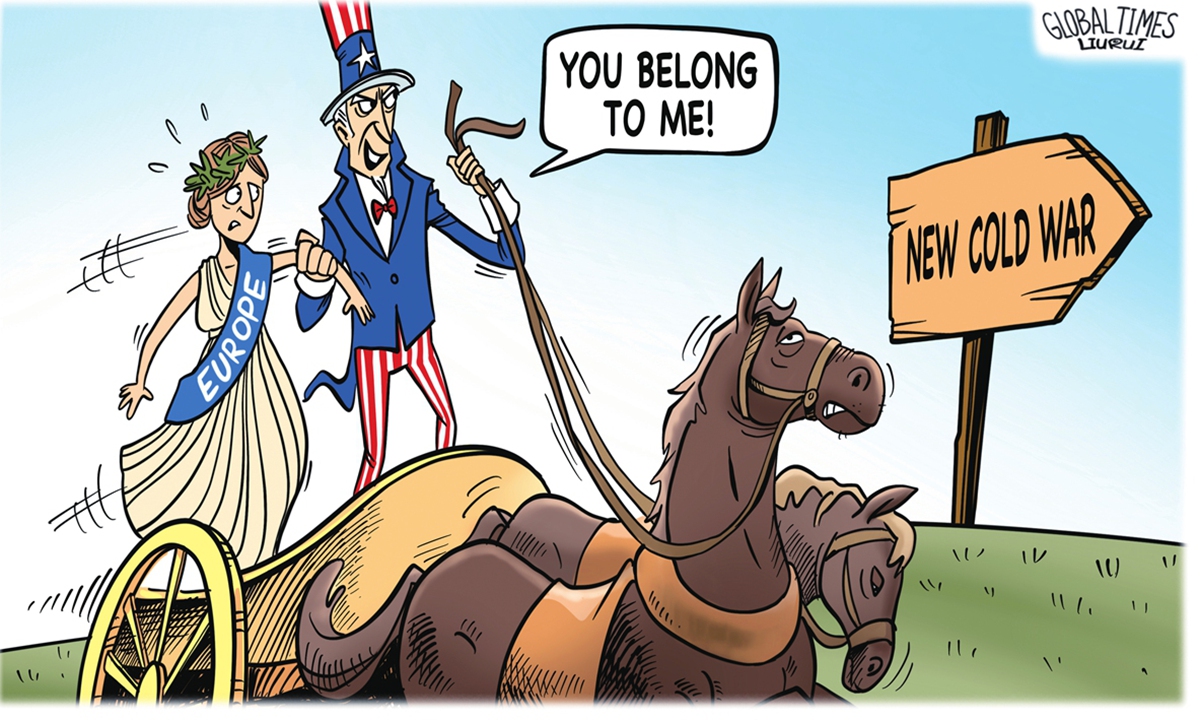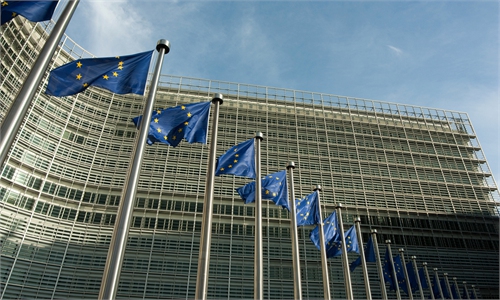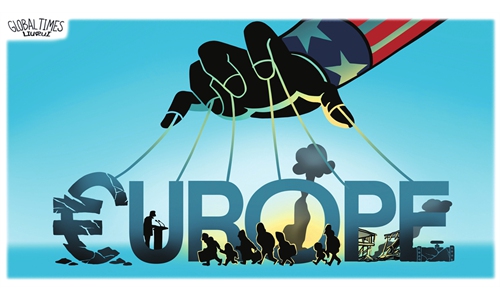
Illustration:Liu Rui/GT
When the topic of "political elites in post-war Europe" is raised, people often think of the "Father of Europe" Jean Monnet, the "architect of the modern EU" Jacques Delors, former German chancellor Angela Merkel, former French president Charles de Gaulle and former British prime minister Margaret Thatcher. They have made outstanding contributions to European integration, prosperity and stability. However, today, it is hard to find European people who can be compared with them.Most of the European political elites who emerged in the early 1900s had extraordinary backgrounds, and most of them graduated from prestigious universities. For a long time after the end of the World War II, political elites took control of state power and created the civilization of European society and secured prosperity for their national economy. However, in today's European political arena, there are few elites and celebrities similar to the aforementioned ones. The changes in the political environment and the surging of new social ideological trends make politicians think more about their immediate political interests. What is even more embarrassing is that many political elites are completely out of touch with ordinary people's lives, yet they advertise themselves as the figures who broadly represent others and lead all classes.
In recent years, many political elites in Europe fall into a "closed loop" of illogical thinking when making major decisions - They focus merely on ideology, political interests and strategic security, but obviously ignore the interests of the general public and the need for pragmatic development. The elected prime ministers of the UK in recent governments were all prominent in terms of their background and education, but they were not widely recognized for their achievements in governing the country and their influence on Europe and the world.
Boris Johnson acted as the "vanguard" of European political elites against Russia in the Russia-Ukraine conflict, which eventually led to the British inflation crisis. Similarly, after taking office, Liz Truss hurriedly introduced large-scale tax cuts and energy subsidy policies regardless of the national conditions in the UK. Against the backdrop of the tight financial situation in the country, the British government simply cannot come up with huge funds to bail itself out. In the end, the government can only change its plans time and again, resulting in people losing trust in it.
Some German political elites, after the outbreak of the Ukraine crisis, also gave too much consideration to ideology and political interests in their foreign policymaking, ignoring their own national conditions and people's livelihoods. Germany has a large population but few resources, and is especially lacking in energy and raw materials. In order to maintain economic prosperity and international competitiveness, it must make up for its shortcomings and seize the opportunities brought by globalization.
Unfortunately, the leaders of the Greens and the Free Democratic Party lack strategic vision and rational thinking. They blame former chancellor Merkel for befriending Russia and escalate sanctions against Russia.
As a result, Germany is being confronted with a difficult situation with high inflation, energy shortages, an economic recession, and rising prices. However, Germany is not only decoupling from Russia economically in all aspects, some "political elites" in the country are also calling for "decoupling" from China too. Such foolish thinking comes from too much focus on ideology.
Since the establishment of diplomatic relations between China and Germany 50 years ago, the two countries have maintained stable bilateral relations and mutually beneficial economic and trade cooperation. China-Germany relations have become a guidepost for China-Europe relations. Some politicians in Germany today are trying to suppress China with ideology and threaten China with economic "decoupling," and seeking to contain China by obstructing cooperation. It can only be said that they have either ulterior motives or shortsightedness.
Due to the lack of real political elites in Europe today, European governments often fail to prioritize livelihood issues in major decisions, ignoring people's demands and pragmatic national development, leading to chaos in European politics. The intractable systemic crisis in European society has given the opportunity for far-right populism to take power in some European countries. In September, Stephen Kinzer, a senior research fellow at the Watson Institute for International and Public Affairs at Brown University, sighed that the West is languishing without great leaders. This has ultimately embarrassed political elites in the West.
The author is a research fellow at the Chinese Academy of Social Sciences' Institute of European Studies. opinion@globaltimes.com.cn


